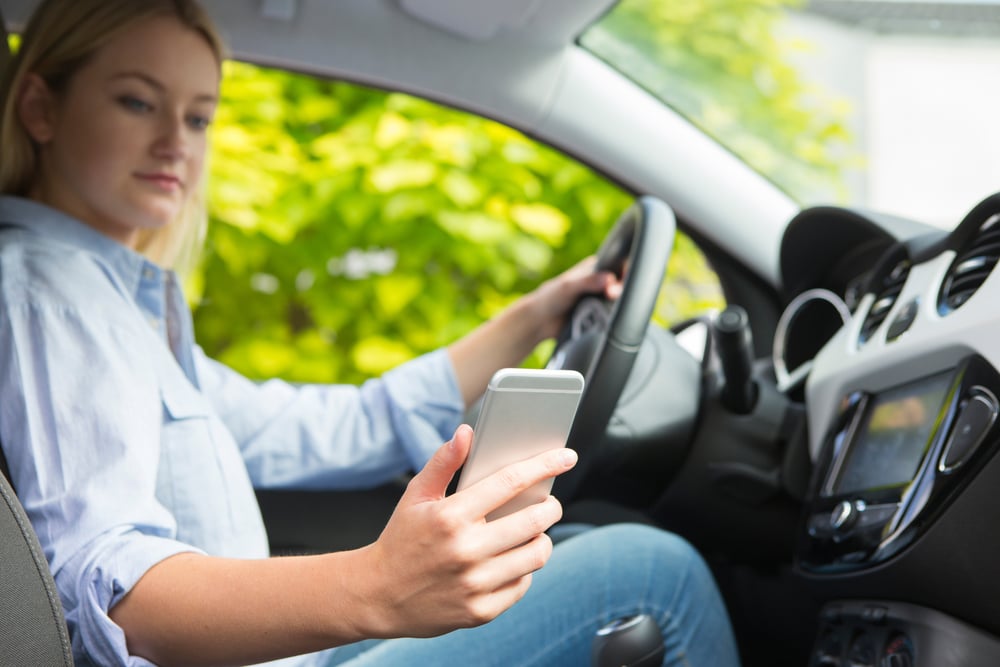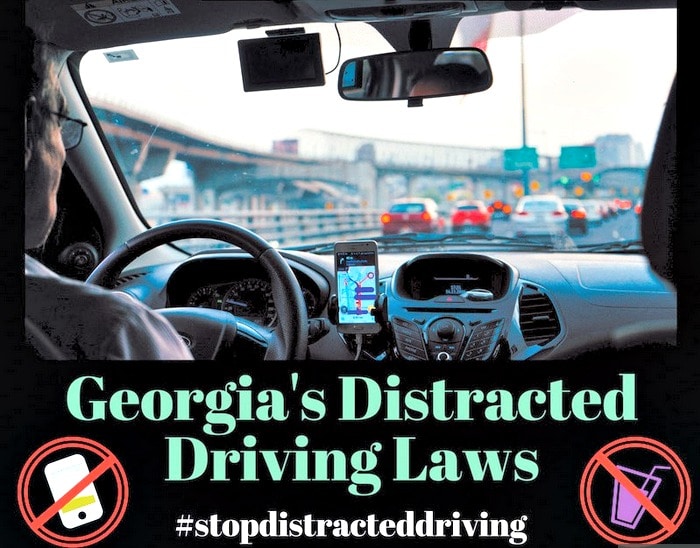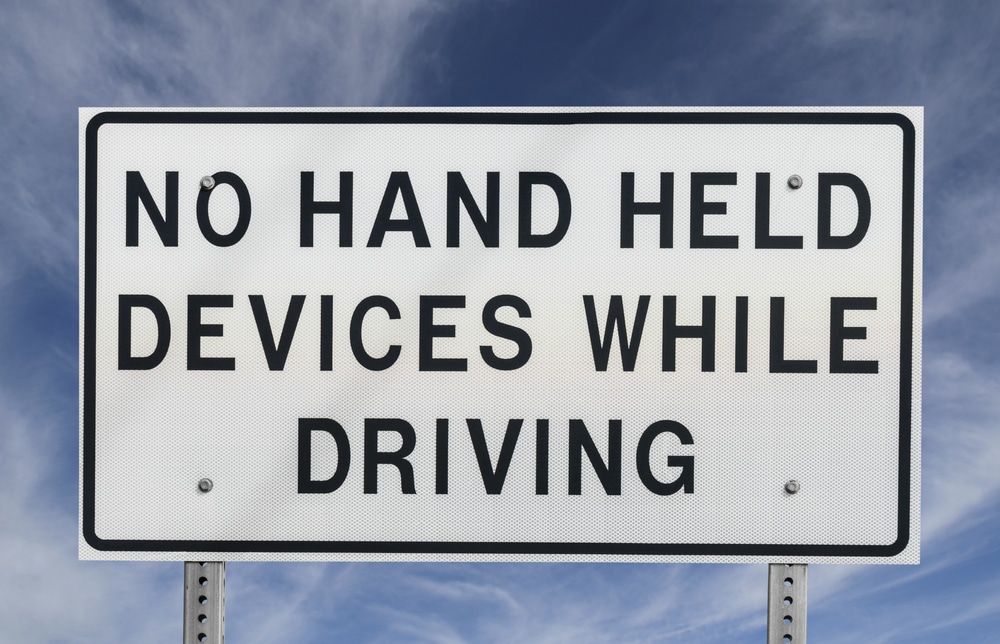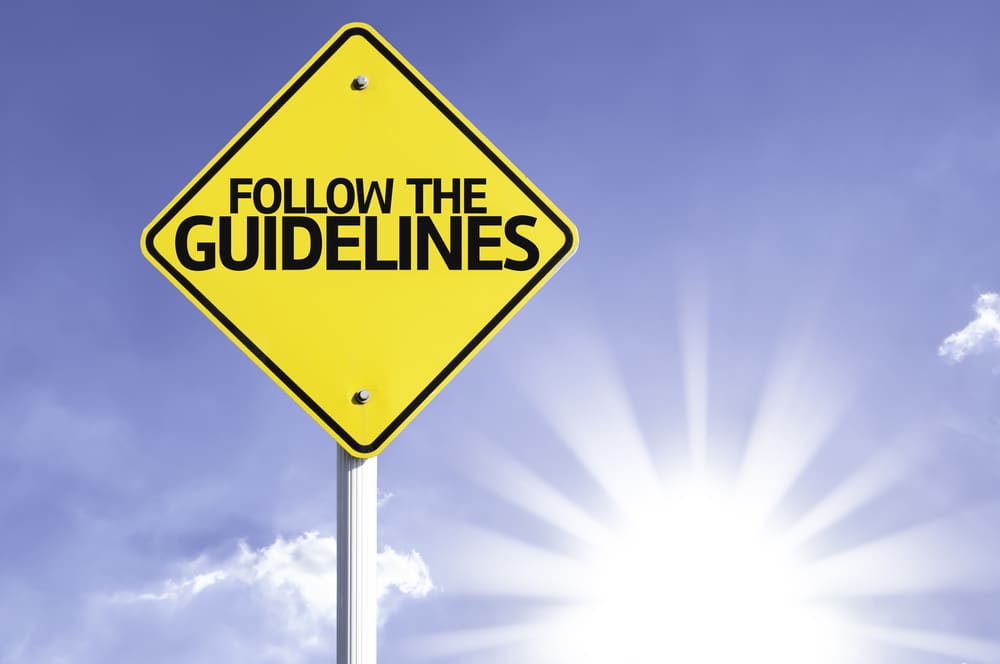Why are cell phones and driving especially dangerous for teen drivers?
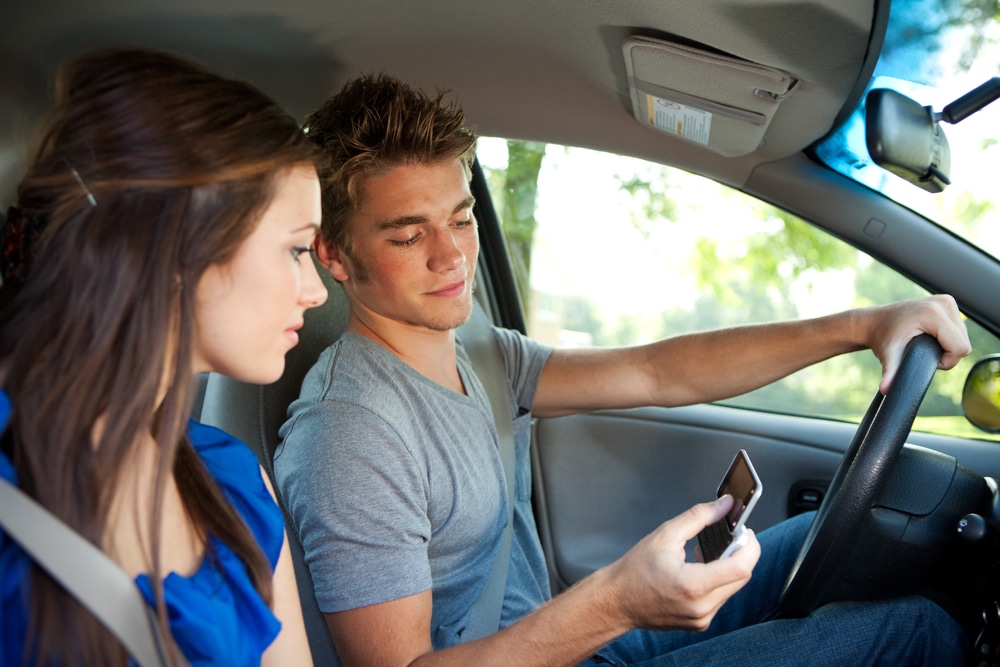
Cell phones and driving are a dangerous and often fatal combination. It’s a problem for everyone, but especially for new and inexperienced teen drivers. So, how can you convince your own teen to hang up, stop texting and taking selfies and just drive?
Car crashes is still the number one cause of death for teens from the age of 16 – 19. When you mix in cell phones and driving, your teen driver’s chance of having a serious or fatal auto accident increases by four times.
Cell phones and driving: The cold hard facts
A study by Cambridge Mobile Telematics found that the majority of recent car crashes resulted from phone distraction. A few shocking findings from the study include:
- Distracted driving occurred during 52% of trips that resulted in a crash.
- On drives that involved a crash, the average duration of distraction was 135 seconds.
- Phone distraction lasts for two minutes or more on 20% of drives with distraction and often occurs at high speeds: 29% at speeds exceeding 56 miles per hour.
- The worst 10% of distracted drivers are 2.3 times more likely to be in a crash than the average driver, and 5.8 times more likely than the best 10 percent of distracted drivers.
- 11 teens die every day as a result from texting and driving
Cell phones and driving + your teen driver
Yes, it’s absolutely true that cell phones and driving do not mix well for any age group. However, it’s most dangerous for teen drivers. Why? Because they are inexperienced. New drivers don’t always know what to do in particular driving situations. In fact, it takes a full five years to become an experienced driver.
According to AAA, 46 percent of all teen drivers admit to text messaging while driving, and that says nothing of the teens who won’t own up to the practice. 51 percent admit to talking on the cell phone while driving. Unfortunately, both practices are quite dangerous, especially for young and inexperienced drivers.
Georgia drivers under 18 with a learner’s permit are completely banned from using wireless devices while driving.
Georgia’s new law on cell phones and driving
Governor Nathan Deal recently signed House Bill 673, which addresses the dangers of cell phones and driving. It requires drivers to use hands-free technology when using cell phones and other electronic devices while driving. The new distracted driving law goes into effect on July 1, 2018.
Georgia’s new law increases the fine for distracted driving from $150 to up to $900 for repeat offenders. It also increased the penalty from 1 point assessed against a driver’s license to up to 6 points for repeat offenders. Drivers with 15 points in a 24-month period lose their licenses.
Under the new law, the following are prohibited, as posted by the AJC:
- Holding or supporting, with any part of the body, a wireless telecommunications device or stand-alone electronic device (for example, an iPod).
- Writing, sending or reading any text-based communication, including a text message, instant message, e-mail or internet data while holding your device.
- Watching a video or movie other than watching data related to the navigation of your vehicle (i.e., your mapping app or GPS screen).
- Recording a video is prohibited.
The new Georgia law allows:
- Speaking or texting while using hands-free technology.
- Using a GPS system or mapping app.
- Using an earpiece to talk on the phone.
- Wearing and using a smart watch.
- Reporting a traffic accident, medical emergency, fire, a crime or delinquent act or a hazardous road condition.
- Drivers can use their phones while “lawfully parked,” which does not include momentary stops at red lights and stop signs.
- Hands-free cell phones and driving
Don’t be lulled into the false security of hands-free technology
While the new law is certainly a step in the right direction, don’t be lulled into the false security of hands-free technology. Three out of four drivers believe that it is safe to use. Most may be surprised to learn that these popular new vehicle features may actually increase mental distraction. When it comes to cell phones and driving, the best solution is to turn them off or put them in the glove box while driving.
A study from the AAA Foundation for Traffic Safety proves dangerous mental distractions exist even when drivers keep their hands on the wheel and their eyes on the road.
For the study, drivers engaged in common tasks, from listening to an audio book or talking on the phone to listening and responding to voice-activated emails while behind the wheel. Researchers used the results to rate the levels of mental distraction drivers experienced while performing each of the tasks. Similar to the Saffir-Simpson scale used for hurricanes, the levels of mental distraction are represented on a scale:
- Tasks such as listening to the radio ranked as a category “1” level of distraction or a minimal risk.
- Talking on a cell-phone, both handheld and hands-free, resulted in a “2” or a moderate risk.
- Listening and responding to in-vehicle, voice-activated email features increased mental workload and distraction levels of the drivers to a “3” rating or one of extensive risk.
So, while hands-free technology may reduce crash risk, it doesn’t eliminate it. In fact, it’s still considered distracted driving and may jeopardize your teen driver’s life.
Set guidelines for cell phones and driving
Before your teen grabs the keys, make sure you have guidelines in place to deal with cell phones and driving. Sit down with your teen to set rules and consequences.
You can’t always watch your teen, but you can definitely let trusted friends and relatives know that you would like to be notified if they spot your child using his phone to talk or text message while driving.
If your parenting style is a little more James Bond than that, you could even go so far as to match up your teen’s usual driving times with cell phone call and text message records. If your teen is a habitual offender, you’ll know pretty quickly.
More advice for cell phones and driving
- Remind your teen driver that handheld cell phones and driving is unlawful under the new Georgia distracted law that goes into effect on July 1st.
- Cell phones and driving – Set a good example! Do you talk and text on your cell phone while driving? If you do, you’re doing a terrible disservice to your teen driver.
- When you pick up the cell phone to make a call as you drive down a deserted stretch of interstate, your teen isn’t thinking, “Well, this is a relatively low-risk driving situation and Mom has a lot more driving experience than me.” He’s thinking, “I guess it’s okay to talk on the phone if you’re a good driver, and I’m getting pretty good…”
No matter how hard it is, you need to resist the temptation to use your cell phone while driving if you want your teen believe it’s a rule worth following.
CLICK HERE get our free newsletter and teen driving tips for parents!
Related Articles:
- How to pick the best driving school for your teen driver
- How to get a Georgia Driver’s License in 4 easy steps
- Tips to help your teen get the best experience from Driver’s Ed
- What to expect when a teen begins in-car driving lessons
